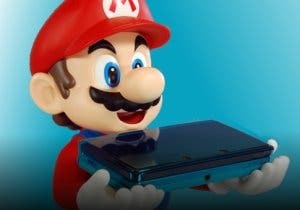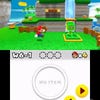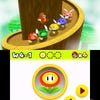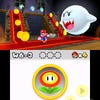Saturday Soapbox: Why the 3DS Won't Die
Why Nintendo never Bowser under pressure.
Matt le Blanc is a funny guy. Being a long-time fan of Friends, I can forgive the actor many things. Maybe even Lost in Space. So when his spin-off series Joey first aired, I felt the need to give it a try.
Like the 3DS' launch, the show wasn't great. It had all the right ingredients: familiar branding, many of the same experienced people behind the scenes. It even launched with a decent amount of marketing. But Joey was never as successful as Friends, and it was all over within two years.
I'm sorry, Matt le Blanc, that TV gave up on you. Because last night as I lay in bed thinking of Nintendo's future, I decided this was wrong.
Success stories can take a while to catch on, to refine. Ever the innovator, Nintendo knows this. So although the 3DS has had a rocky start to its life, Nintendo won't be writing off the 3DS any time soon. And neither should we.
I remembered reading something a television exec had said, shortly after Joey was cancelled. They had argued that the new show had suffered at the hands of critics who, week after week, would compare it to its predecessor. That against many years of its forerunner finding its way and improving season upon season, it couldn't compete straight out of the gate. And how unfair this was, that a new concept never had the chance to find its own success story, in time. Sound familiar?
It's easy to forget, but the DS also suffered launch jitters. Pre-launch, it was billed very much as a "third pillar" for Nintendo alongside its existing home console and handheld brands, the appeal of its second screen an unknown. During its first Christmas it sold a modest 2.84 million units. After four months on sale the DS had sold 5.27 million units. In comparison, after the same amount of time on sale, the 3DS has sold 4.32 million units.
Comparing early DS and 3DS figures is not an exact science. The former's European launch came a couple of months later than the US and Japanese launches, which benefited from the golden Christmas release window. But even bearing this in mind, the figures are not actually markedly different. If you add to this August's dramatic price cut, it is not unreasonable to assume that the 3DS has actually sold more units than the DS in a similar time period.
It was not until the DS' second Christmas that Nintendo reported that hardware sales had broken the eight figures barrier, with a decent 14.43 million sold by the end of 2005. But still, this is far short of the DS' most recent tally - some 147.86 million by the end of July this year, an almost unimaginable increase on the system's initial sales figures.
How did it get to such a staggering total? DS sales failed to accelerate until 2006, the year Nintendo redesigned the console with the launch of the DS Lite. From 16 million sales after the Lite launched in Japan in March to 26 million the following September, the console began to gain momentum. It had sold nearly 36 million by the year's end.
Clearly Nintendo hardware cannot be written off so quickly, and although the 3DS may be struggling now, Nintendo is no stranger to slow-burning hardware launches. As gaming hardware companies go, Nintendo is one of the most experienced in the business. We've already seen Nintendo preparing the 3DS' first redesign with the much derided Slider Pad. But while it may not be aesthetically pleasing (and it's worth remembering the hulking original silver DS was never going to be invited to many parties either) it is certainly a sign that Nintendo has an eye on the figures, and is pushing for change as soon as possible.
And of course it's working towards a 3DS Lite with this all built in. When the Slider Pad launches for European gamers, likely in January alongside the first compatible title Resident Evil: Revelations, it'll be eleven months since the 3DS launched here. Not long at all, analysts have pointed out; Nintendo must surely be panicking. Yet the DS Lite launched in Europe just fifteen months after the DS did, and that was rather more radical than a simple piece of plastic to be clipped on.











